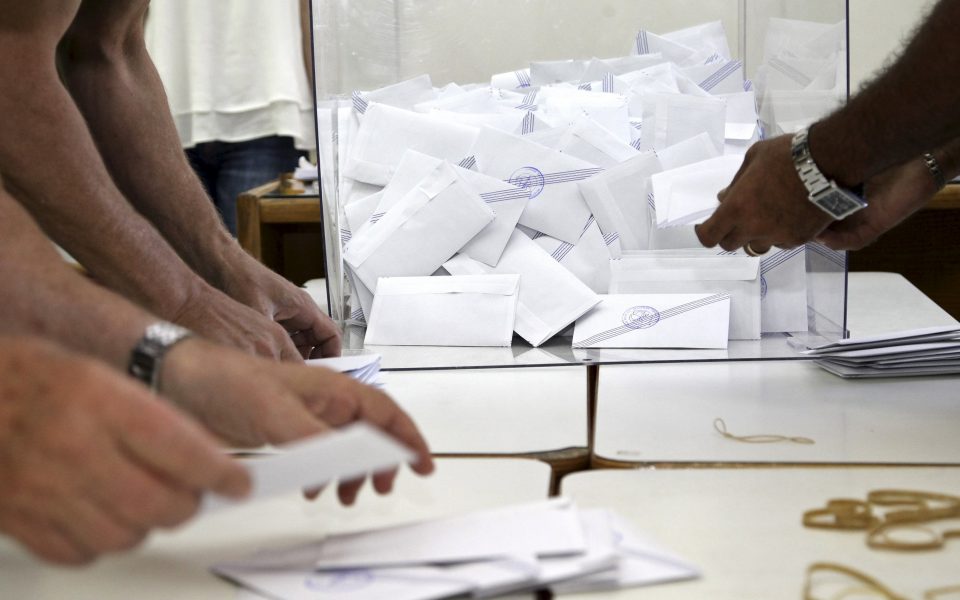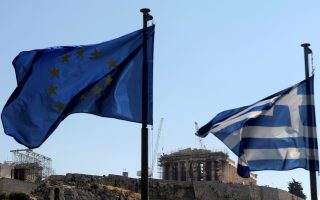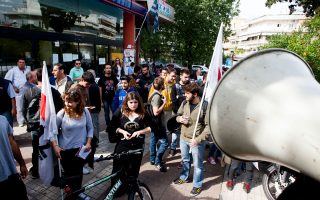Greek election scenarios: the good, the bad, and the ugly

Greece’s election remains too close to call as a three-week campaign wraps up on Friday with no clear front- runner in a vote that may put Europe’s most indebted state on course for thorny coalition talks as of next week.
Opinion polls show Alexis Tsipras’s SYRIZA party and Evangelos Meimarakis’s conservative New Democracy party running neck and neck ahead of Sunday’s vote. With a fragmented parliament and no apparent winner, Greece risks being dragged into difficult coalition talks that could delay the implementation of measures required by creditors in exchange for emergency loans, including for the recapitalization of banks. That’s a delay Greece can ill afford.
“Greece has to act fast after the election,” said Holger Schmieding, chief economist at Berenberg Bank in London. “Fast progress is essential to gradually rebuild the trust in government and confidence in the future that is needed for some of the capital outflows to be reversed and for the slump in investment to end.”
A rolling tracker averaging the most recent findings of surveys by ten Greek pollsters shows SYRIZA retaining a razor- thin lead over New Democracy, well within the margin of statistical error, according to data compiled by Bloomberg late on Thursday local time.
The left-wing party would tie with New Democracy at 28 percent, according to a Pulse poll posted on To Pontiki website on Thursday. The margin of error in the survey was plus or minus 2.5 percent, while 5.5 percent of respondents said they haven’t decided whether and what to vote yet.
Good scenario
A coalition with a strong pro-European mandate, led by either New Democracy, or SYRIZA, will be the most positive outcome, according to Michael Michaelides, a rates strategist at Royal Bank of Scotland Group Plc in London. This would determine how willing will the new government be in implementing the terms attached to its 86 billion euro ($97 billion) bailout, Michaelides said.
Tsipras’s inability to garner support for the new bailout from his own lawmakers stripped him of his parliamentary majority leading to Sunday’s elections. The SYRIZA leader has ruled out a coalition with New Democracy, and said he will seek to join forces again with anti-austerity Independent Greeks.
In a reversal from earlier statements, though, he left the door open for pro-bailout To Potami and PASOK parties, during a television debate earlier this week. Polls show that Independent Greeks, the right-wing junior coalition partner in his government, will struggle to make it to next parliament.
According to Greece’s electoral system, the winner of the vote gets a bonus of 50 seats in the country’s 300-seat chamber. This means that if the party which prevails gets less or just over 30 percent, as polls project, it will need the support of one or two smaller parties to secure a parliamentary majority. If the winner falls considerably short of 30 percent, then a grand coalition, or repeat elections, may be the only choice left to the country’s political system.
Even though Tsipras opted for a compromise with creditors, braving a split within SYRIZA, the “good scenario for the elections would be a New Democracy-led coalition of moderate parties,” said Lefteris Farmakis, an analyst at Nomura International.
New Democracy, which has governed Greece for much of the past four decades, has vowed to safeguard the country’s place in the euro area, and seek to build a broad coalition of all the parties which supported the latest bailout, including SYRIZA.
Tsipras has built up trust with his European counterparts since he was elected prime minister in January on a promise to end austerity, only to sign the bailout accord after six turbulent months of wrangling with creditors. After bringing Greece back from the verge of exiting the euro area, he’s now seen as the best bet to secure stability and carry out the necessary reforms after the elections, officials, who asked not to be named because of the political sensitivity of the matter, said earlier this month.
Bad scenario
The bad scenario in the election would be a SYRIZA-led government, “but without the support of Potami and PASOK,” said Michaelides. In this case, the implementation of the bailout “will depend on support from Independent Greeks on a very tight majority.”
For Nomura’s Farmakis, a bad outcome would be “a highly fragmented parliament, with SYRIZA and New Democracy getting very low shares of the vote, in which case more parties will be needed to form a government.”
According to an official directly involved in Greece’s bailout program, the fact that five parties, including Tsipras’s SYRIZA, have committed to the program is a cause for optimism. Yet, the lack of technical expertise and faith of some SYRIZA officials in the reforms envisaged in the agreement may complicate their implementation.
Any new government will have to ensure the successful conclusion of the first review of the bailout this fall to secure the first disbursement of funds under the bailout.
The official, who asked not to be named as he wasn’t authorized to speak publicly on the matter, said Greece could receive over 50 billion euros, including the 25 billion euros earmarked for the recapitalization of banks, as well as funds for winding down government repos and clearing up state arrears to vendors and suppliers by the end of the first review.
With so much at stake, technical competence in completing the so-called prior-actions of the program, is essential, the official added.
“Europe has handed Greece one last lifeline,” said Schmieding. “If Greece does not grasp it, Europe won’t send any further money and Grexit would be back on the agenda before the year is out.”
Ugly scenario
In the worst case-scenario, the vote on September 20 may lead to a parliament so fragmented that four parties may be needed to form a viable coalition, or that Tsipras would have to turn to the pro-drachma Popular Unity party for tacit support, according to RBS’s Michaelides.
Led by former SYRIZA heavyweights Panayiotis Lafazanis and Zoi Konstantopoulou, who revolted against the compromise Tsipras struck with creditors, Popular Unity advocates Greece’s departure from the euro area. Far right Golden Dawn and the Communist Party of Greece, which, according to polls may place third and fourth in this Sunday’s vote, also support rupture with the European Union.
“A disastrous scenario would see Golden Dawn, and the anti- European parties getting a really high share of the vote,” said Farmakis. “But that’s just a tail risk and it’s highly unlikely to happen,” the Nomura analyst added. “Even a bad scenario will probably be good-enough for investors in the grand scheme of things.”
[Bloomberg]





